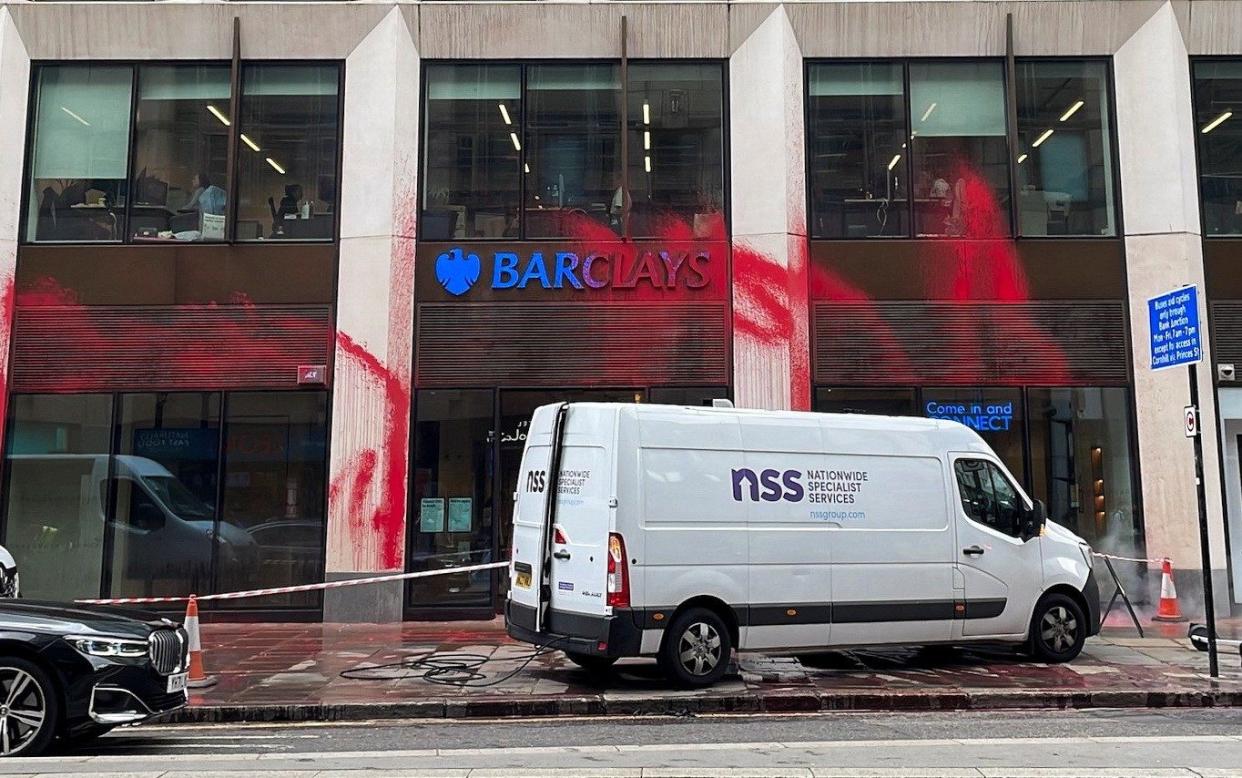Vicious attacks on defence firms and banks leave Britain less safe

A few weeks ago, I had the privilege of being on the Stevenage factory floor of MBDA, the British defence contractor which manufactures the Storm Shadow missile.
The weapon, individually hand-made by engineers at the site, has more than any other weapon helped Ukraine in its battle with Vladimir Putin’s forces, not least in wresting control of the Black Sea.
I had seen Ukrainian President Volodymyr Zelensky not long before that visit. He thanked me directly for the British military aid that has been so fundamental in protecting Ukraine, keeping it in the battle against the invading Russian forces, and saving Ukrainian lives.
I will be honest, when I passed on the President’s thanks to the staff at MBDA, I felt both emotional and immensely proud of the military support we have been able to provide to a fellow European democratic nation in its darkest hour.
The sight of Barclays Bank branches from Glasgow to Brighton being violently targeted by protestors this week brought home the warped logic of opponents of the UK defence industry.
These attacks, which saw banks daubed with paint and windows shattered, were the work of both climate action groups and Pro-Palestinian activists. This picture has become depressingly familiar in recent years, but the fusing of these two issues has given it added menace.
Why should a Barclays employee fear going to work in the morning? Just because, among a huge portfolio, the investment side of their bank holds stock in some of the most important UK companies?
We have seen similar sentiment affecting literary festivals, though without the violence, where pressure has forced companies to pull out. Protesters have forced the exit of investment firm Baillie Gifford, a long standing supporter of the arts scene, because of its small investment in fossil fuel and Israeli companies, including in the defence sector. We have even seen it at the Ministry of Defence, with yobs defacing its historic building in Whitehall because of a misplaced belief that the Government sends offensive weapons to Israel.
I acknowledge that people feel strongly on these issues and I accept completely the right to protest. But the idea that it is unethical to invest in defence, particularly here in the UK where we are a world leader, is simply wrong. These companies help protect this country and our allies. At a time of such global insecurity, the ability to defend ourselves and keep the peace has never been more important.
In fact, as I have said before, it would be immoral for investors to turn away from defence companies, which support more than 200,000 jobs across the country. Such is the strength of this industry that Ukraine has been able to count the UK among its strongest allies over the past two years as it fights Russian aggression. Deriding it puts freedom at stake.
A strong UK defence industry is the bedrock of our national security, protecting the supply of equipment that our service personnel use to protect us, the weapons we need to deter our enemies, and the ability to support our allies’ Armed Forces. The vast majority of people in this country understand why defence firms are so vital, and why banks including Barclays should be wholeheartedly backed. They should not be subject to ill-informed intimidation and violence.
There is always a place for reasoned debate and protest. Democracy depends on it. But too often right now we are seeing vicious, ugly attacks on lawful businesses and institutions that are the exact opposite of what democracy should be.
Rt Hon Grant Shapps is secretary of state for defence

 Yahoo News
Yahoo News 
